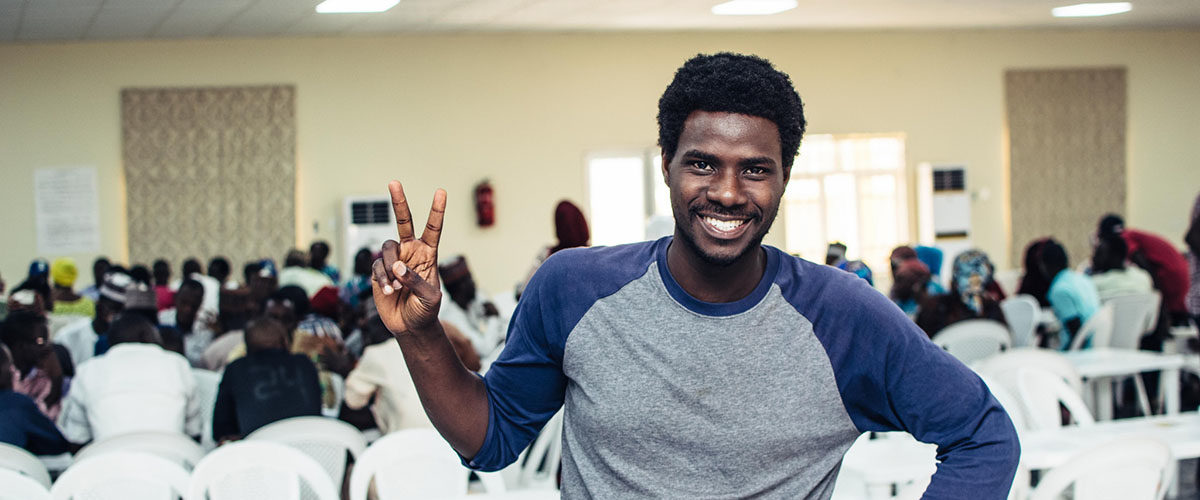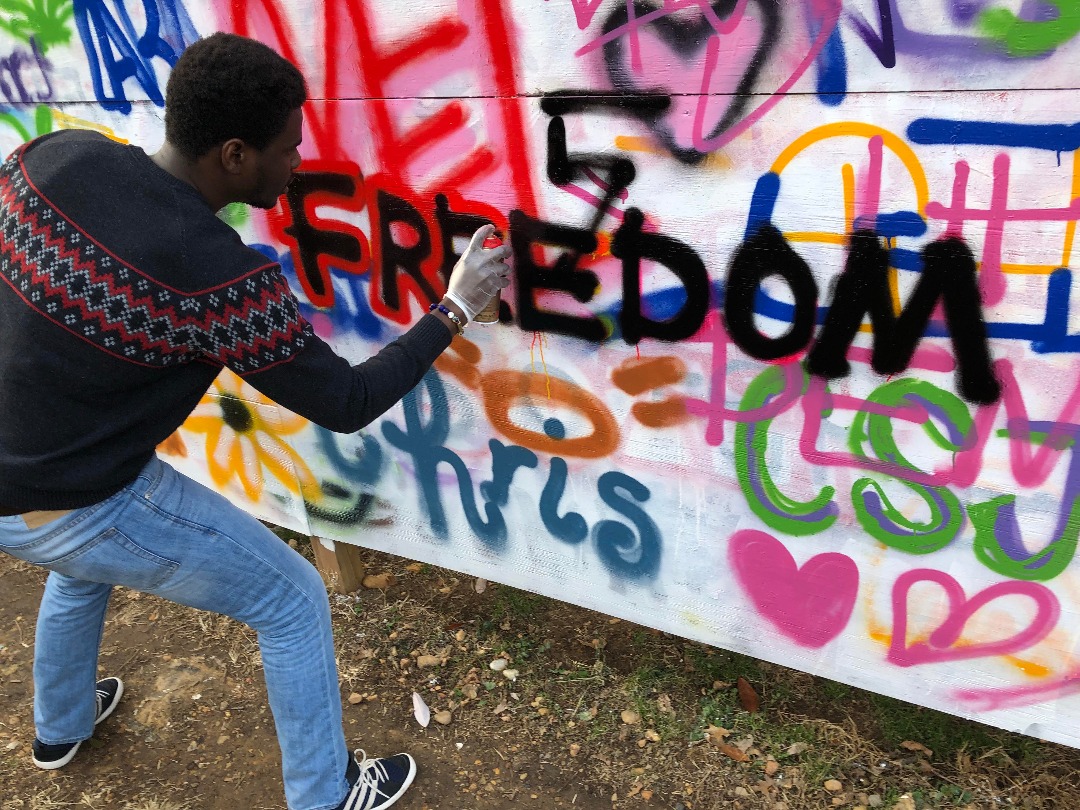In recent times, I have been asked about my experience as a fellow at the National Endowment for Democracy. In this piece, I would like to share five things that I found exciting about living in DC and the Fellowship. Yes, because you cannot take out the DC life from the fellowship, and I hope prospective and new NED fellows will benefit from these highlights. Caveat: This was my personal experience between during the winter of 2017 as a Reagan – Fascell Democracy Fellow, and I urge you to read until point 5, as I saved the best for the last. Happy reading.
1. Exploring living with a host was my best decision. While preparing for my move to DC, I was given the options of renting an apartment or living with a host. I took the latter and did not regret that. In terms of rent, I was paying a thousand dollar bucks a month at my host apartment in Woodley Park. I had access to a bathroom, a kitchen and a room, no I think room(s). My host introduced me to other networks and families in the DC area, which to me, was the most important part of my fellowship – nothing else. Giving out cookies for treats on Halloween, and making pies and turkey for the family on Thanksgiving was a super memoir. When my family came visiting DC, they were super helpful in advising on where to go for family events and family gatherings.
2. Planning for your project. “I wanted to write a handbook,” I told Sally during our initial meeting on my plan on my fellowship project. She responded that writing a book within your few months here might not be feasible but that nevertheless if I want to go ahead, I should draw up an action plan on how to achieve that within the next five months. Before leaving for DC, I already had an outline for the handbook, and I just had to work on drafting a plan and working with my research assistant to get the work done. Yes, I had a super cool research assistant, who helped in proofreading my excerpts and writing notes during meetings. I finished writing the manuscript of the book in the third month. Of course, there was 24 hours of power, access to a million + resources, and it was during the winter cold. No brainer, having an action plan did the work – Voila!
3. The upcoming policy events for the week. On Monday mornings, I always get a policy event in DC email from NED highlighting the list of policy events that will happen in DC during the week. Looking at those events, it reaffirmed to me that DC was the capital of the world. The policy events were organized for top policy discussions around continents in the world. As a fellow, you will also be privileged to hold a policy event at NED. My event was titled – Decaying Institutions: How Corruption Undermines Democracy in Nigeria. Want to know about what’s brewing in Africa, there is a dialogue or discussion about it. Think of any continent – there is always a policy event about that continent. I enjoyed attending a few of them at the Atlantic Council, Institute for the Analysis of Global Security, The OpenGovHub, The Brookings Institute, and The Carnegie Endowment for International Peace (CEIP). This gave me the opportunity to network with scholars and practitioners who were interested in my work, and to also explore possible ways of collaboration. Of course, I am currently consulting with one of the organizations I encountered during the policy events. Absolutely, your network is your net worth – no be lie!
4. Fellowship Brown bags and museums in DC. There was at least one brown bag every week. A Brown bag is an informal one hour knowledge sharing on a topic during lunchtime. Brown bags are organized for fellows or past fellows who are in DC, NED staff or the NED leadership. There are more than thirty museums in DC. During my fellowship, I was able to visit twelve. Top on my list was the National Museum of African American History and Culture, the Hirshhorn National Museum of Modern Art and the recently opened Museum of the Bible. Most of the museums in DC are free, so feel free to explore one every weekend. NED Fellows do visit other places of interest in DC, at least two places in a month. The visit to the Library of Congress remains the most memorable, aside from the visit to the African American History museum. Ask me why? I think The Library of Congress houses the history of America, and if you have a knowledgeable tour guide, he will give you an insight into the history of America within three hours.
5. Some other important stuff. The fellowship activities were engaging but I still find time to involve myself in other “extra – fellowship activities”. For instance, I was at the Hip Hop Institute for three weekends to learn Hip Hop culture and Graffiti. There are other exciting stuff in DC you could learn as well during the fellowship. At Politics and Prose, you could hang out with book lovers to listen to book readings. Aha, one last thing, do not leave DC without hanging out at Busboys and Poets – it will leave your eyes, ears and tummies with such a unique experience. So what about the fellowship pay? To be frank, some were shy in asking this, but I think it’s very important as you will need it to pay bills and live the American dream – that’s if you have one. Total payment for the fellowship was US$28,500. Pay per month was 4,700 bucks but you always get around 4,017 bucks in your bank account at the end of the month owing to the tax deduction. When you arrive in DC for the fellowship, you will get a check by the end of the 2nd week of your arrival and your monthly payment at the end of that month. Happy Savings (Spend less!)
This was my fourth fellowship in five years, and I think this was the most useful because it allowed me to develop a product, interact with the American culture, network with people, reflect on my past work, and was a perfect segway for my launch to academics.

